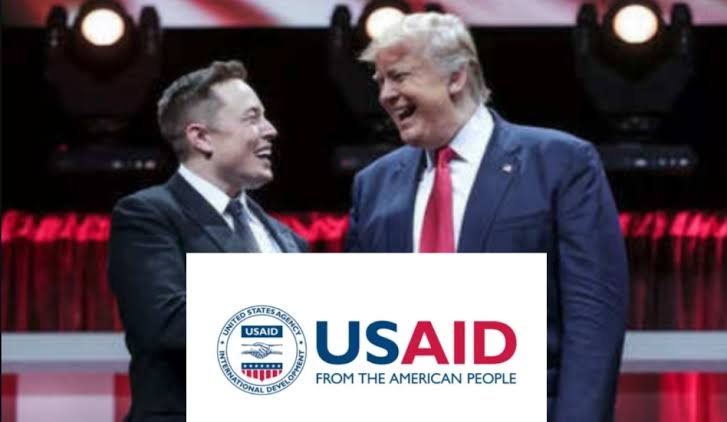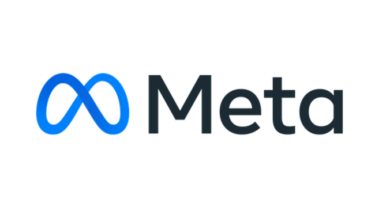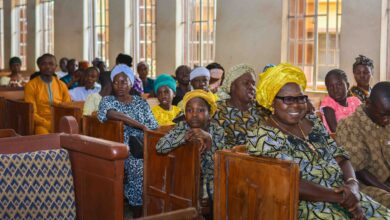
By Oluwaseye Ogunsanya
The recent announcement of a temporary freeze on almost all US foreign assistance by the Trump administration has put countries across the world in a frenzy mode, especially those that are heavily reliant on U.S. foreign aid to support their health and development initiatives.
“President Trump stated clearly that the United States is no longer going to blindly dole out money with no return for the American people. Reviewing and realigning foreign assistance on behalf of hardworking taxpayers is not just the right thing to do, it is a moral imperative.” State Department spokesperson Tammy Bruce said in a statement.
The decision to halt funding for US foreign aid especially through the United States Agency for International Development (USAID) is as part of Trump’s “America First” policy that prioritizes national interests over global commitments and it has led to significant disruptions in various health, education, development, security assistance and other programmes vital for millions of lives across the world.
It is worthy of note to mention that the United States is the world’s largest humanitarian donor by far. It spends less than 1% of its budget on foreign assistance, a smaller share of its budget than some countries.
President Donald Trump has criticized the agency as being “run by a bunch of radical lunatics,” while tech billionaire Elon Musk, who heads his government efficiency initiative, called USAID a “criminal organization.”
While some stakeholders have also condemned the step taken by the US government against USAID, citing implications for the common people who are the main beneficiaries of the programmes, some insist it serves as a wake-up call for Nigeria and other African countries to look inward.
This explainer looks at this development indepthly and its implications for Nigeria’s development initiatives.
WHAT IS USAID AND ITS ROLE IN NIGERIA?
The United States Agency for International Development (USAID) was set up by then-President John F. Kennedy in 1961 as an independent agency, with a two-pronged goal: to counter Soviet influence during the Cold War and to run various foreign assistance programs, based on the idea that American security was tied to stability and economic advancements in other nations in the early 1960s to administer foreign aid, focusing on humanitarian assistance, economic development, and democratic governance on behalf of the US government.
It employs around 10,000 people, two-thirds of whom work overseas, according to the Congressional Research Service. It has bases in more than 60 countries and works in dozens of others. However, most of the work on the ground is carried out by other organisations that are contracted and funded by USAID.
The range of activities it undertakes is massive as it assists nations in conflict and other “strategically important countries” by alleviating poverty, disease and other crises. In addition, a BBC report stated that not only does USAID provide food in countries where people are starving, it also operates the world’s gold-standard famine detection system, which uses data analysis to try to predict where food shortages are emerging.
In Nigeria, USAID has played a crucial role in funding health programmes, including HIV/AIDS treatment, maternal and child health, and initiatives aimed at combating malaria and tuberculosis. The agency also focuses on economic growth, nutrition and food security, governance, gender equality, renewable energy, and humanitarian and development programmes in Northeast Nigeria. In 2023, Nigeria received approximately $1.02 billion in U.S. foreign aid, making it one of the largest beneficiaries of USAID funds. Relatively, Nigeria is 6th among the top countries that are the highest beneficiaries of USAID.
WHAT LED TO THE FUNDING FREEZE?
Shortly after assuming office in January 2025, President Trump signed an executive order on Inauguration Day, freezing all U.S. foreign assistance for 90 days pending a review. This decision aimed to assess whether U.S. aid aligns with the administration’s foreign policy objectives.
Following this directive, Secretary of State Marco Rubio issued a cable outlining its implementation, effectively halting nearly all foreign assistance programs. Exceptions were made for emergency food programs and military aid to Egypt and Israel. Consequently, a “stop work” order was issued, disrupting essential services relied upon by vulnerable communities.
Additionally, the abrupt closure of USAID’s headquarters has further stalled aid distribution. In a statement on its website late Tuesday, the agency announced that almost all direct hires worldwide would be placed on administrative leave later this week. However, personnel responsible for mission-critical functions, core leadership, and specially designated programs will continue working. Those expected to remain on duty will be notified by 3 p.m. Thursday.
HOW HAS NIGERIA RESPONDED?
In light of the funding freeze, the Federal Government of Nigeria has formed a multi-ministerial committee aimed at developing a transition and sustainability plan for health programmes previously funded by USAID. This committee, consisting of officials from the ministries of finance, health, and environment — seeks to ensure that patients receiving treatment for HIV, tuberculosis, and malaria do not experience setbacks amid the uncertainty over U.S. foreign policy.
In the same vein, the Federal Executive Council on Monday approved $1 billion for healthcare sector reforms under the Human Capital Opportunities for Prosperity and Equity (HOPE) programme and allocated an additional $3.2 million to procure 150,000 HIV treatment packs over the next four months.
Authorities noted that the new funding will support improvements in primary healthcare services, maternal and child healthcare, and training of healthcare professionals.
WHAT ARE THE IMMEDIATE CONSEQUENCES?
According to the Associated Press, The U.S. gave Sub-Saharan Africa more than $6.5 billion in humanitarian assistance last year. Therefore, the aid pause means that the region could suffer more than any other region.
Human rights groups and health organisations across Nigeria have reported significant disruptions. Key programmes have had to halt operations, leading to staff layoffs and the inability to provide critical services to survivors of modern slavery and other vulnerable populations. Public health experts have also warn that without USAID funding, Nigeria risks losing progress in combating diseases and improving healthcare outcomes.
“With no notice, staff salaries would be cut, advocacy campaigns halted, and vital training programmes cancelled. For example, a family planning training program planned for Abuja was abruptly cancelled just two days before its launch due to the funding freeze.” The Chairman of the Management Committee Association for the Advancement of Family Planning, Dr Ejike Orji said in an interview with Vanguard in Lagos.
“We had everything in place—partners, participants, and logistics. But the funding halt forced us to scrap the programme entirely. The ripple effects will be felt across the communities we were meant to serve.” he added.
According to Orji, a key focus of USAID’s support in Nigeria – the health sector, is currently facing devastating consequences. With the agency providing 80 percent of Nigeria’s resources for managing diseases like HIV and malaria, the withdrawal of these funds according to him means that decades of progress will be threatened and undone, leading to an immediate crisis.
Dr. Orji however stressed the need for the government to step up, learn to stand on its own and prioritize local funding for critical sectors.
“This is a wake-up call for African countries. We cannot continue to depend entirely on foreign aid. The government must step up and prioritize local funding for critical sectors
“This isn’t just about money. It’s about lives. It’s about the future of a nation. The government must act swiftly to prevent a full-blown disaster. Nigeria must learn to stand on its own. This is a painful but necessary lesson. It’s time to invest in ourselves and take control of our destiny.” he added.
WHAT ARE THE CHALLENGES AHEAD?
While Nigeria’s government has announced plans to allocate $1 billion for healthcare reforms, experts like Ndeayo Iwot from the Health Sector Reforms Coalition caution that these funds alone cannot cover the extensive needs previously supported by USAID.
“Even when they’re releasing the available funds on time, they will not be able to cover all the areas that those funds [aid] were helping them to achieve. It will take time, probably two, three years,” said Iwot.
Iwot added Nigeria needs new partnerships for health programs.
“Health needs a multi sectoral approach, it works on partnerships, there are certain things you shouldn’t do alone as a country. Going through resource pulling from many partners and stakeholders is a recommended approach to financing health activities,” said Iwot.
The uncertainty caused by the current freeze on USAID funding places the health sector in a challenging situation as stakeholders contend with how to navigate the coming months. The consensus among health advocates and thought leaders is that Nigeria must mobilise and invest heavily in its healthcare system.
Some of the challenges that lies ahead according to a report by Nigeria Health Watch include decades of underspending with only about 4% of Nigeria’s annual budget is allocated to healthcare, falling short of the 15% target set by African leaders in the 2001 Abuja Declaration, insufficient investment and competing priorities such as high rate of poverty, insecurity, failing infrastructure, as well as inadequate education, all of which demand immediate attention.
From a fiscal standpoint, the report added that Nigeria’s rising debt profile means more resources are being allocated to servicing domestic and foreign debt, which impacts the allocation of funds available for essential public services, including health.
WHAT IS THE FUTURE OF USAID’S ROLE IN NIGERIA?
It remains uncertain whether the U.S. will reverse its decision after the 90-day pause. However, analysts stress the importance of careful policy implementation and new funding partnerships to safeguard the health and other development programmes that millions of Nigerians rely on. The situation calls for a proactive approach from both the Nigerian government and international stakeholders to ensure the continuity of essential services while navigating the challenges posed by the funding freeze.
CONCLUSION
The suspension of USAID funding under the Trump administration represents a critical juncture for Nigeria’s health and development initiatives. With millions of lives at stake, the country must explore new partnerships and funding mechanisms to cushion the impacts of this withdrawal and continue progressing toward universal health coverage and improved developmental initiatives outcomes. The next few months will be pivotal in determining how Nigeria adapts to this new reality in global aid dynamics.




